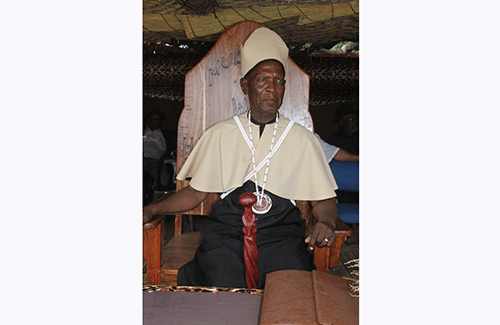RUNDU – The Parliamentary Standing Committee on Constitutional and Legal Affairs will undertake a fact-finding visit to the Bwabwata National Park in Kavango East this week.
This follows a petition from the local traditional authority, demanding that the authorities revisit a Cabinet decision of 1999 that no cattle be allowed in the national park.
The Hambukushu Traditional Authority, on behalf of their community, wrote a petition to parliament, requesting the National Assembly to revisit the decision that no cattle be allowed in that national park, or any other game park in the north-east.
The traditional authority noted that there were no proper consultations done before Bwabwata was proclaimed a national park. “Such a decision was passed without the knowledge and proper consultation with the Hambukushu Traditional Authority and community at large,” read their petition.
The traditional authority furthermore said they have over the years been submitting proposals to former environment ministers on how best the park could be utilised by both government and the traditional authority. Some of the proposals were to demarcate the Bwabwata National Park into two sections, namely a wildlife conservation section and a human settlement section for farming units.
In that regard, the Hambukushu proposed that the portion of land from Buffalo Gate, stretching to the eastern part of Bwabwata, which is about 30km, and back up to Mushangara or Diyundo and a 10km radius from Omega 1, be allocated for farming. “Such proposals could have been incorporated as conditions in the proclamation provisions of the park.
However, the Hambukushu Traditional Authority and its community only came to learn about the proclamation from the Ministry of Environment, Forestry and Tourism when the ministry became hostile in its quest to evict livestock from Bwabwata, claiming that Bwabwata is a national park proclaimed in 2007, and that Cabinet took a decision of that nature after the proclamation,” read the petition.
In a statement last week, the Legal Assistance Centre (LAC) criticised the petition for not addressing the plight of the minority indigenous Khwe San community, who have originally occupied the area since time immemorial.
“The Khwe are a distinct ethnic group in the Kavango East and Zambezi regions, descendants of the first people living in the area. But they have repeatedly had their status, both as a traditional community and indigenous peoples, denied by the Namibian government,” the LAC said.
“For the Khwe, as for other indigenous people worldwide, their connection to the land is deep-rooted and an essential part of their identity.
What is today’s Bwabwata National Park is effectively the centre of Khwe ancestral lands.” The LAC also insisted that the Khwe people cannot be represented by the Kyaramacan Association, which is currently regarded as their primary body representing their interests.
“The association is not an exclusively Khwe body, and therefore cannot fully represent the unique needs and interests of the Khwe people as a whole.”
Parliamentary spokesperson David Nahogandja said the committee will engage the traditional authority and community members, the Kyaramacan Association and the community of Omega settlement on the petition.



